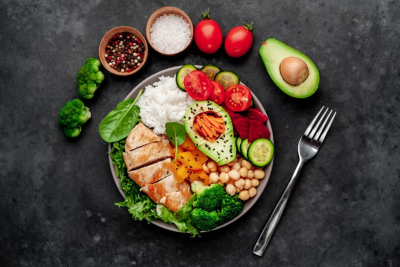
Does Halal Mean Healthier?
Whenever Halal food is discussed in gatherings, many questions are raised about it, but the one that stands out the most is, “Does Halal mean healthier?” This issue has piqued additional interest as people are now increasingly driven by ethics, health and sustainability. Halal food has gained attention for covering all three aspects, but with research and advancements in the health field, every consumer is aware of it. But does Halal food mean healthier? Although the principles of Halal align with many health-conscious practices, such as avoiding harmful substances and prioritizing humane animal treatment, let's look into the nuances of Halal food, its preparation methods, and the potential health benefits while, addressing common misconceptions and the role of Halal food in a healthy lifestyle.
Does Halal Mean Organic or Sustainable?
It’s important to differentiate Halal from other food labels like “organic” or “sustainable.” While Halal focuses on cleanliness and ethics, it does not necessarily require organic farming or eco-friendly practices. However, some Halal-certified brands do look after these values to cater to health-conscious consumers.

Is Halal Food Healthier?
Yes, Halal food can be healthier than non-Halal food, as Halal food is often leaner and is a good source of high protein. Halal meat, such as poultry and beef, is usually leaner than non-Halal meat, as it may contain less fat (besides desired marbling in high quality beef cuts) and doesn't contain any blood, and animals that are completely drained of blood are also high in protein. Lean protein is important for muscle development, tissue repair, and overall health.
Health Benefits of Halal food
While Halal standards promote quality and purity, food being Halal does not automatically guarantee health benefits. Here are some potential health aspects:
- Lower Contaminants:
In Halal slaughter, blood is drained from the animal’s body, thereby removing any prominent toxins and reducing microbial growth. This practice can lower the risk of foodborne illness.

- Ingredient Restrictions:
Halal-certified products do not contain harmful additives, alcohol, or pork, which are significantly linked to various health risks, such as heart disease, liver problems, and inflammation. - Cleaner Preparation
Cleanliness is the main priority, as it minimizes the risk of contamination, which is crucial for Halal food safety. - Focus on Freshness
Many Halal food products prioritize freshness, which is vital for retaining nutrients of the food. - Encouragement towards Moderation
Halal principles align with Halal guidelines that promote moderation and gratitude towards food, which can lead to balanced and mindful eating habits.
Common Misconceptions About Halal & Health
While Halal food offers several health benefits, not all Halal food is inherently nutritious, as healthiness depends on more factors. Halal does not automatically mean healthy.

Here are some common misconceptions about Halal food:
- High-Calorie & Processed Halal Foods:
Certain Halal-certified products, like fried snacks, sugary desserts, and fast foods, are high in calories, saturated fats, salts, and sugars. While the ingredients may be Halal, when combined with other ingredients like salt and sugar and in high concentrations, consuming these in excess can lead to obesity, diabetes, and other health problems. - Cooking Methods Matter:
Even the highest quality Halal meat or food can become unhealthy if prepared with unhealthy methods, such as deep frying or excessive use of fats and oils. - Portion Control & Overall Diet:
A Halal diet may still lack balance if it’s low in vegetables, fruits, and whole grains, emphasizing the importance of overall dietary patterns rather than just certifications.
How to Further Make Halal Eating Healthier
There are further ways to make Halal eating healthier for those aiming to optimize the health benefits of Halal food:
- Choose Whole Foods: Opt for minimally processed Halal ingredients like fresh vegetables, lean meats, and whole grains.

- Cook with Healthy Methods: Grill, steam, or bake instead of deep frying, sautéing or air frying.
- Read Labels Carefully: Check the ingredients of the product before buying it; even Halal-certified products can contain hidden sugars, salts, or preservatives especially if you have diabetes, allergies or aversions that can impact your health
Halal food standards undeniably prioritize purity, cleanliness, and ethical practices, which undoubtedly align with many aspects of a healthy lifestyle. However, Halal certification alone does not ensure a balanced or nutritious diet. As a healthy diet depends on the individual’s personal choices, such as preparation methods, and overall lifestyle. Nevertheless, Halal food does certainly offer a framework for mindful and ethical consumption. By pairing these values with an emphasis on whole, nutrient-dense foods, Halal can be a part of a healthier and more conscious way of eating.
Islamic Services of America (ISA) is a leading USA based Halal certification and auditing organization serving companies, the community, and the Halal certification industry for over 50 years. Contact ISA at isa@isahalal.com or send your initial inquiry to Halal certify your products at https://www.isahalal.com/contact or visit the ISA website for more information at https://www.isahalal.com/